Happy New Year!
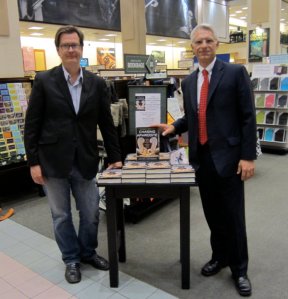 We want to share our profound thanks for the 24,000 visits we’ve had since we launched this site with the release of Chasing Aphrodite last May. You’ve helped make the book a success while shining a light on art world shenanigans. Thank you for reading.
We want to share our profound thanks for the 24,000 visits we’ve had since we launched this site with the release of Chasing Aphrodite last May. You’ve helped make the book a success while shining a light on art world shenanigans. Thank you for reading.
We’ve got many more revelations in store for you in 2012. If you’d like to keep receiving updates, be sure to subscribe via the box on the top right. You can also follow our more frequent comments on the latest news by liking our Facebook page or following us on Twitter.
We hope to see some of you at our upcoming events, which include talks at the National Press Club in DC on January 24th and Google and UCLA in February. You can get details and find our other event listings here.
Without further ado, here are your favorite posts of 2011:
1. An Exchange with Hugh Eakin at The New York Review of Books
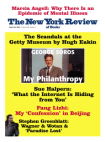 Our exchange with Hugh Eakin in The New York Review of Books caught a lot of attention last year. We found the review flattering in several places, but also curiously littered with contradictions. Here is Hugh’s June review, and our response. An abbreviated version of the exchange was printed in the NYROB’s August issue here.
Our exchange with Hugh Eakin in The New York Review of Books caught a lot of attention last year. We found the review flattering in several places, but also curiously littered with contradictions. Here is Hugh’s June review, and our response. An abbreviated version of the exchange was printed in the NYROB’s August issue here.
2. The Secret FBI File: J. Edgar Hoover vs. J. Paul Getty
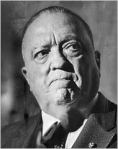 Was J. Paul Getty a Nazi collaborator? That is the provocative question that J. Edgar Hoover asked in 1940, when the FBI opened a secret investigation into J. Paul Getty’s possible ties to the Nazi regime. While reporting Chasing Aphrodite, we obtained Getty’s FBI file under the Freedom of Information Act. We posted the annotated file online and pulled out highlights of the investigation.
Was J. Paul Getty a Nazi collaborator? That is the provocative question that J. Edgar Hoover asked in 1940, when the FBI opened a secret investigation into J. Paul Getty’s possible ties to the Nazi regime. While reporting Chasing Aphrodite, we obtained Getty’s FBI file under the Freedom of Information Act. We posted the annotated file online and pulled out highlights of the investigation.
3. Getty Museum Returns Two Objects to Greece, Signs Collaboration Deal
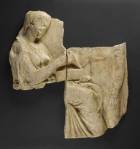 In 2011, American museums continued to return looted antiquities to their country of origin, and the Getty Museum was no exception. In September, the Getty agreed to return two objects to Greece and formalized a broad cultural agreement that will lead to loans, joint research and other collaboration with the art-rich Hellenic Republic. The agreement mirrors similar deals struck with Italy and Sicily in the wake of a negotiated settlement to claims the Getty had for years purchased ancient art looted from those countries.
In 2011, American museums continued to return looted antiquities to their country of origin, and the Getty Museum was no exception. In September, the Getty agreed to return two objects to Greece and formalized a broad cultural agreement that will lead to loans, joint research and other collaboration with the art-rich Hellenic Republic. The agreement mirrors similar deals struck with Italy and Sicily in the wake of a negotiated settlement to claims the Getty had for years purchased ancient art looted from those countries.
4. The Becchina Dossier: A New Window into the Illicit Trade
The conviction of Italian dealer Giacamo Medici set off the whirlwind of controversy detailed in the final chapters of Chasing Aphrodite. But Medici was just the opening move of the Italian investigation of the illicit antiquities trade. In 2001, Italian authorities raided the warehouse of Medici’s main rival, Gianfranco Becchina, seizing 13,000 documents, 6,315 antiquities and 8,000 photographs of objects, many of which appeared recently excavated. Today, it is the Becchina Dossier that forms the center of Italy’s continuing investigation of the international trade in looted antiquities. Like the Medici files, the Becchina Dossier provides a striking record of the illicit trade, showing the path of thousands of looted objects from tombs across the Mediterranean to the display cases of leading museums around the world. Stay tuned as we’ll be making public more details from the Becchina case in 2012.
When the Getty’s statue of Aphrodite was returned to Italy in May, we were there to tell the story. In this report for the LA Times, Jason described how new theories about the goddess are being considered now that she’s back home. Who is the goddess? Does her slightly awkward marble head really belong atop the massive limestone body? Where precisely was she found? And what can she tell us about the ancient Greek colonists who worshiped her some 2,400 years ago? The fact that so little is known about the marble and limestone statue — one of the few surviving sculptures from the apex of Western art — illustrates the lasting harm brought by looting and the trade in illicit antiquities.
6. Jiri Frel: Scholar, Refugee, Curator…Spy?
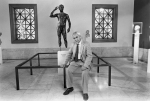 In the early 1980s, the antiquities department at the J. Paul Getty Museum was a hotbed of whispered political intrigue. Rumors swirled that the department’s Czech curator, Jiri Frel, was a Communist spy. And many believed the deputy curator, former State Department official Arthur Houghton, was a CIA plant tasked with keeping an eye on Frel’s activities. Frel’s once-classified FBI file, obtained by the authors under the Freedom of Information Act, reveals that the US Government asked similar questions about Frel in 1971, when an investigation was conducted into his “possible intelligence connections.”
In the early 1980s, the antiquities department at the J. Paul Getty Museum was a hotbed of whispered political intrigue. Rumors swirled that the department’s Czech curator, Jiri Frel, was a Communist spy. And many believed the deputy curator, former State Department official Arthur Houghton, was a CIA plant tasked with keeping an eye on Frel’s activities. Frel’s once-classified FBI file, obtained by the authors under the Freedom of Information Act, reveals that the US Government asked similar questions about Frel in 1971, when an investigation was conducted into his “possible intelligence connections.”
7. The Getty Fights to Keep its Bronze
A week after sending its statue of Aphrodite back to Italy, the Getty was fighting to keep another ancient masterpiece: its priceless bronze statue of an athlete, whose 1964 discovery by Italian fisherman is featured in the opening chapter of Chasing Aphrodite. Here’s our report on the latest in the fight for the Getty bronze.
8. Houghton on The McClain Doctrine and Crimes of Knowledge
 Did American museum officials violate US laws when buying looted antiquities? We attempt to answer that hypothetical using internal Getty memos written by former curator Arthur Houghton, who spelled out the risk of violating the National Stolen Property Act when buying objects with unclear provenance.
Did American museum officials violate US laws when buying looted antiquities? We attempt to answer that hypothetical using internal Getty memos written by former curator Arthur Houghton, who spelled out the risk of violating the National Stolen Property Act when buying objects with unclear provenance.
9. The Truth about Marion True
 When archaeologist Malcolm Bell reviewed Chasing Aphrodite in The Wall Street Journal in July, he largely agreed with our premise — that American museums fueled the destruction of knowledge by acquiring looted antiquities and using what Bell calls a “fabric of lies” to obscure their complicity in an illicit trade. But Bell’s review took an odd turn when he recommended that former Getty antiquities curator Marion True, who was fired after we revealed her blatant conflicts of interest, be hired “for a major museum position.” We respond.
When archaeologist Malcolm Bell reviewed Chasing Aphrodite in The Wall Street Journal in July, he largely agreed with our premise — that American museums fueled the destruction of knowledge by acquiring looted antiquities and using what Bell calls a “fabric of lies” to obscure their complicity in an illicit trade. But Bell’s review took an odd turn when he recommended that former Getty antiquities curator Marion True, who was fired after we revealed her blatant conflicts of interest, be hired “for a major museum position.” We respond.
10. Looted Antiquities at American Museums: An On-Going Crime
 For those who might be tempted to think the issues raised in Chasing Aphrodite are behind us, we discuss a recent law review article that argues that continued possession of unprovenanced antiquities (ie most of those in American collections) could be an on-going crime under US law.
For those who might be tempted to think the issues raised in Chasing Aphrodite are behind us, we discuss a recent law review article that argues that continued possession of unprovenanced antiquities (ie most of those in American collections) could be an on-going crime under US law.
BONUS: Finding Loot at Your Local Museum
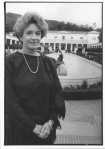 Marion True once told her museum colleagues: “Experience has taught me that in reality, if serious efforts to establish a clear pedigree for the object’s recent past prove futile, it is most likely — if not certain — that it is the product of the illicit trade and we must accept responsibility for this fact.” In that same spirit, we gave fellow investigative reporters from around the world a few tips on how to find looted antiquities at their local art museum during the June meeting of Investigative Reporters and Editors (IRE).
Marion True once told her museum colleagues: “Experience has taught me that in reality, if serious efforts to establish a clear pedigree for the object’s recent past prove futile, it is most likely — if not certain — that it is the product of the illicit trade and we must accept responsibility for this fact.” In that same spirit, we gave fellow investigative reporters from around the world a few tips on how to find looted antiquities at their local art museum during the June meeting of Investigative Reporters and Editors (IRE).
In 2011, we put that advice to work with revelations about objects in several museum collections. Our New Year’s resolution: to do much more of the same in 2012!

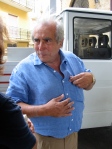
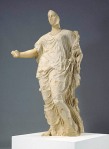
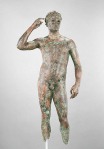
 Was J. Paul Getty a Nazi collaborator?
Was J. Paul Getty a Nazi collaborator?
